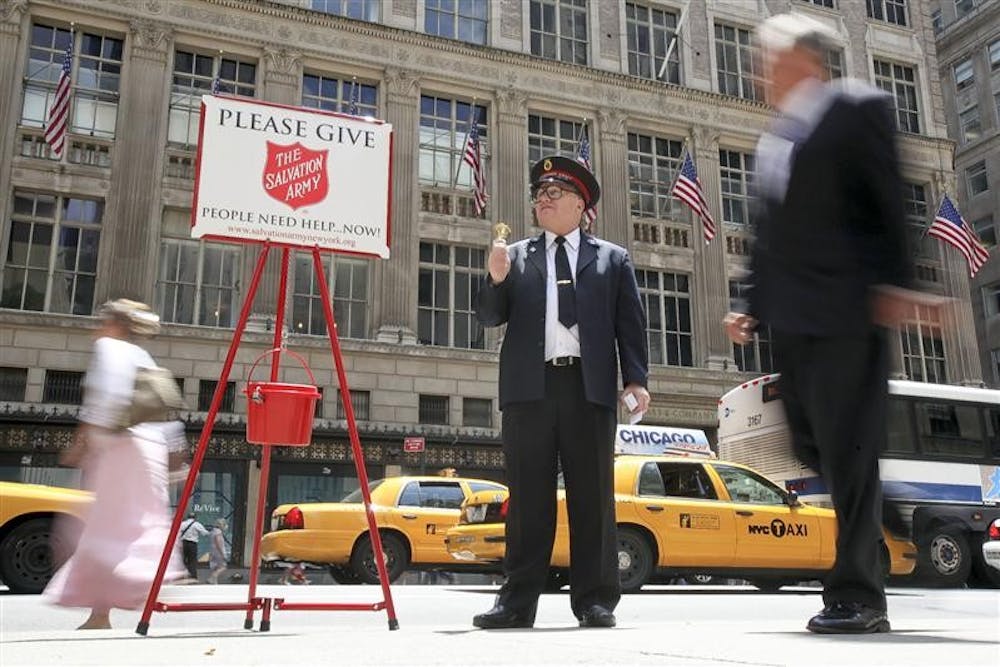JACKSON, Miss. – The Salvation Army is struggling with dwindling donations across the country that will make it hard to give long-term assistance after a disaster, and a spokesman for the charity said “we have to hope and pray” this year’s hurricane season is mild.
The organization will continue to provide the basics – food, water and shelter, said Maj. George Hood, the Salvation Army’s national spokesman.
But it isn’t likely to offer more costly recovery aid, such as the $10,000 grants that were given to Hurricane Katrina victims to help them repair their homes. The religious charity also has given mortgage, rent and down payment assistance to disaster victims in the past.
The Salvation Army’s cost-cutting moves include plans to close two offices along the hurricane-prone Gulf coast: one in Mississippi’s Hancock County Aug. 28 and one in Metairie, La., in December. Both were Katrina recovery centers.
Hood said the moves were made by local divisions of the charity.
“The problem is the economy,” Hood said, adding that the agency will still be able to offer basic services in a crisis. “If and when we have a hurricane, the Salvation Army will be there. We’ll be mobilized.”
Still, even last year, Hood said the organization was unable to offer as much sustained help in the aftermath of Hurricanes Gustav and Ike as in years past.
The charity usually raises $50 million to $75 million for a single hurricane relief effort, but last year, it raised only $13 million for the entire season, Hood said.
The 2009 Atlantic hurricane season began June 1. The National Oceanic and Atmospheric Administration predicts a near-normal season, with a chance of four to seven hurricanes with up to three of them being major storms.
Lea Stokes, deputy director of the Mississippi Emergency Management Agency, said the Salvation Army’s diminished resources could mean delays for families – and communities – struck by storms because it is one of the nation’s biggest disaster relief organizations.
“Federal assistance does not completely replace everything you’ve lost in a disaster. It only helps you get back on your feet,” Stokes said. “The majority of families who are disaster survivors are going to rely on the nonprofit organizations, such as the Salvation Army, to help them rebuild their lives.”
Donation slump could hinder Salvation Army's disaster assistance

Get stories like this in your inbox
Subscribe



